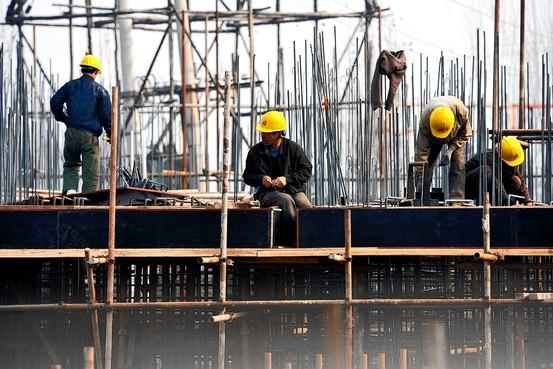BEIJING A senior Chinese official said in 2007 that much of the country's local economic data are unreliable, according to a leaked diplomatic cable published by the WikiLeaks website.

Imaginechina/Zuma Press
A construction site in Liaoning province, where Vice Premier Li Keqiang was Communist Party secretary in 2007
The official,Li Keqiang, was at the time Communist Party secretary of the northeastern province of Liaoning, and has since been promoted to vice premier. Since landing that position, he has overseen many of the central government's efforts to improve the quality of its economic statistics, which continue to face many questions over their accuracy and consistency.
Mr. Li is considered the top contender to take over as premier, the top economic policy-making position, when the current head of government, Wen Jiabao, steps down in early 2013. The reported comments provide intriguing context for his current role, which among other tasks include overseeing the ongoing nationwide population census.
China's Foreign Ministry has said it will not comment on the content of the diplomatic cables published by WikiLeaks. The leaked cable reports comments Mr. Li made in a dinner in Beijing with then-U.S. Ambassador Clark Randt on March 12, 2007. His remarks focused on the challenges of administering the province of Liaoning, which because of its legacy of failed state-owned enterprises was burdened with a large number of unemployed workers.
"When evaluating Liaoning's economy, he focuses on three figures: 1) electricity consumption, which was up 10% in Liaoning last year; 2) volume of rail cargo, which is fairly accurate because fees are charged for each unit of weight; and 3) amount of loans disbursed, which also tends to be accurate given the interest fees charged," the cable says.
"By looking at these three figures, Li said he can measure with relative accuracy the speed of economic growth. All other figures, especially GDP statistics, are 'for reference only,' he said smiling," the cable reads. "GDP figures are 'man-made' and therefore unreliable," the cable paraphrases Mr. Li as saying.
Analysts have long questioned the reliability of economic figures produced by local governments in China. Because local officials' careers often depend on how well the economy in their jurisdiction is performing, there is an incentive for them to report positive figures.
Many private-sector analysts also closely track the indicators reportedly favored by Mr. Li, which are thought to reflect real activity and be less subject to political influence.
The nationwide gross domestic product figures published by the National Bureau of Statistics are not directly based on the provincial GDP figures and attempt to correct for some of their biases. Indeed, almost all of China's provinces consistently report GDP growth rates above the national average.
The NBS, while defending the nationwide figures it produces as fundamentally accurate, has sought more influence over the numbers compiled by local authorities.
In his public comments about economic statistics, Mr. Li also has repeatedly stressed the importance of gathering accurate information.
"Data live and die by their quality," he said at a government meeting in early 2009, urging accuracy in a count of the nation's businesses and their economic activities. "Statistical data provide effective support to our efforts to promote stable and relatively fast economic growth over the long term."
More recently, in a speech last month on the census, Mr Li said:
"We are a large developing country with a population of more than a billion people, so accurately understanding the status of our population and its changes helps us better make and implement economic and social policies."





